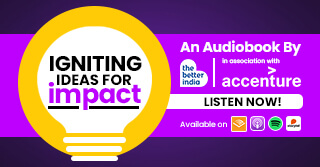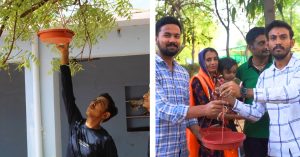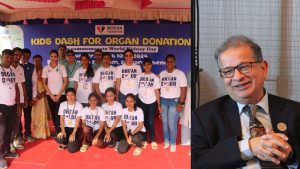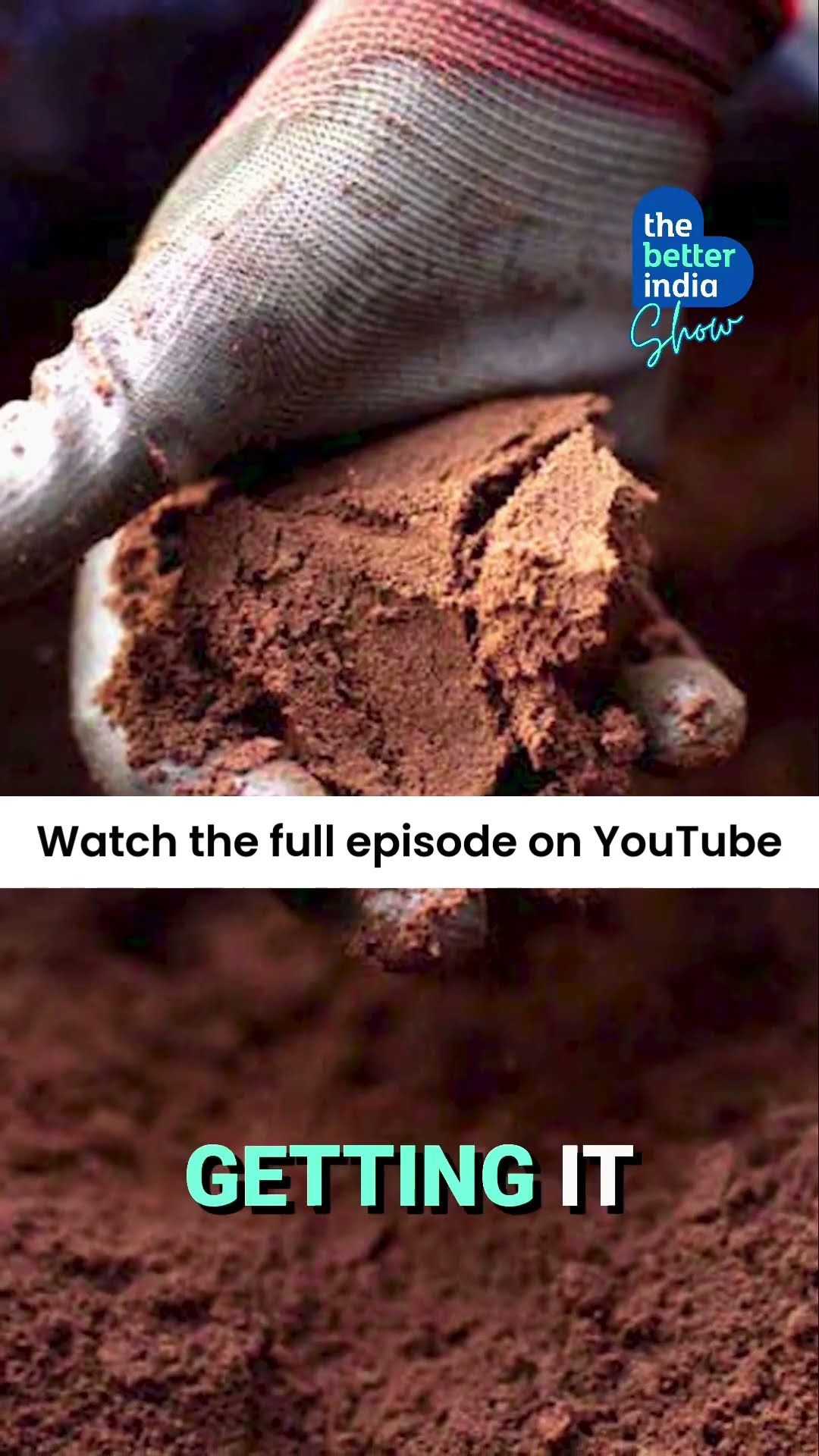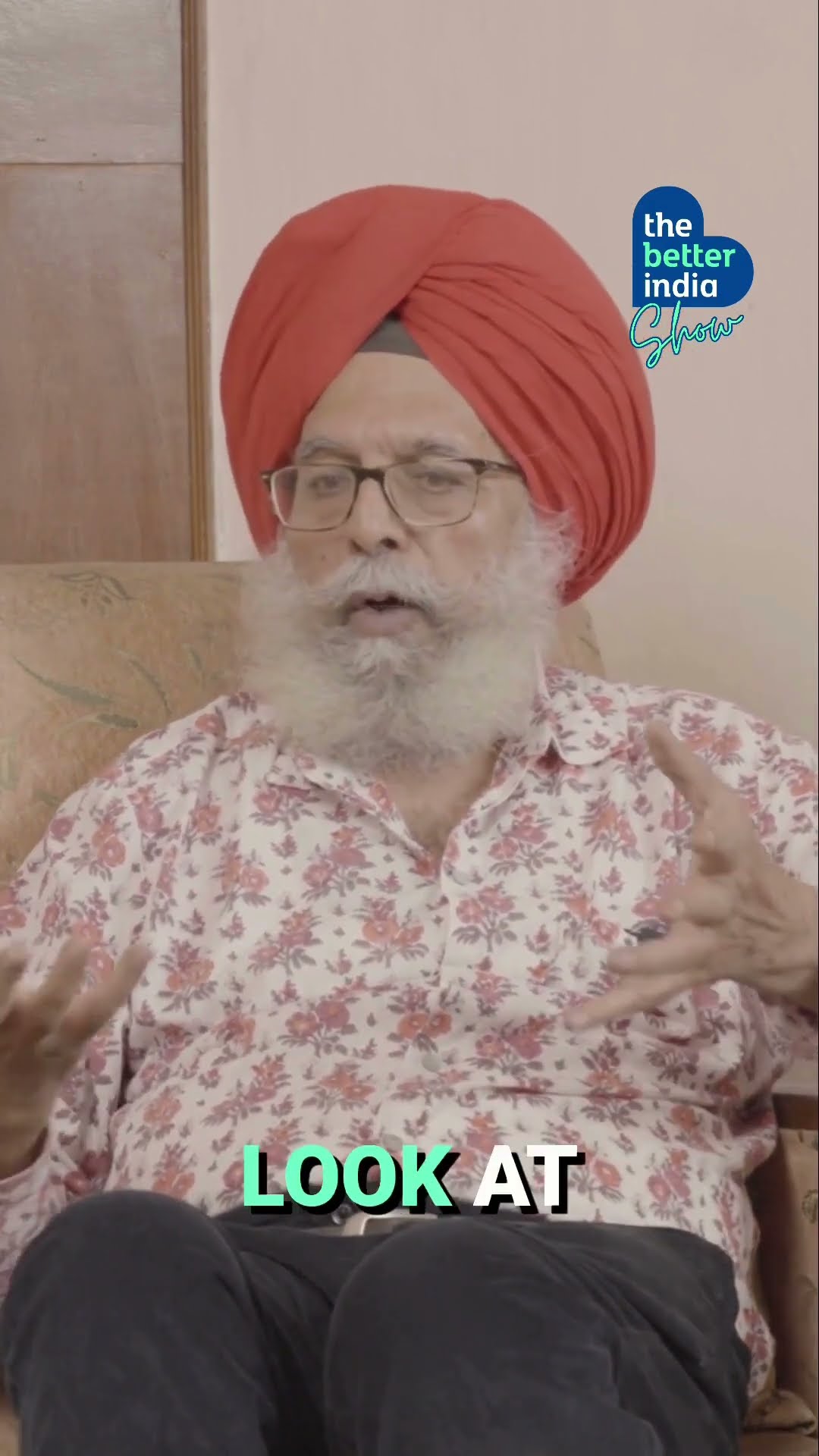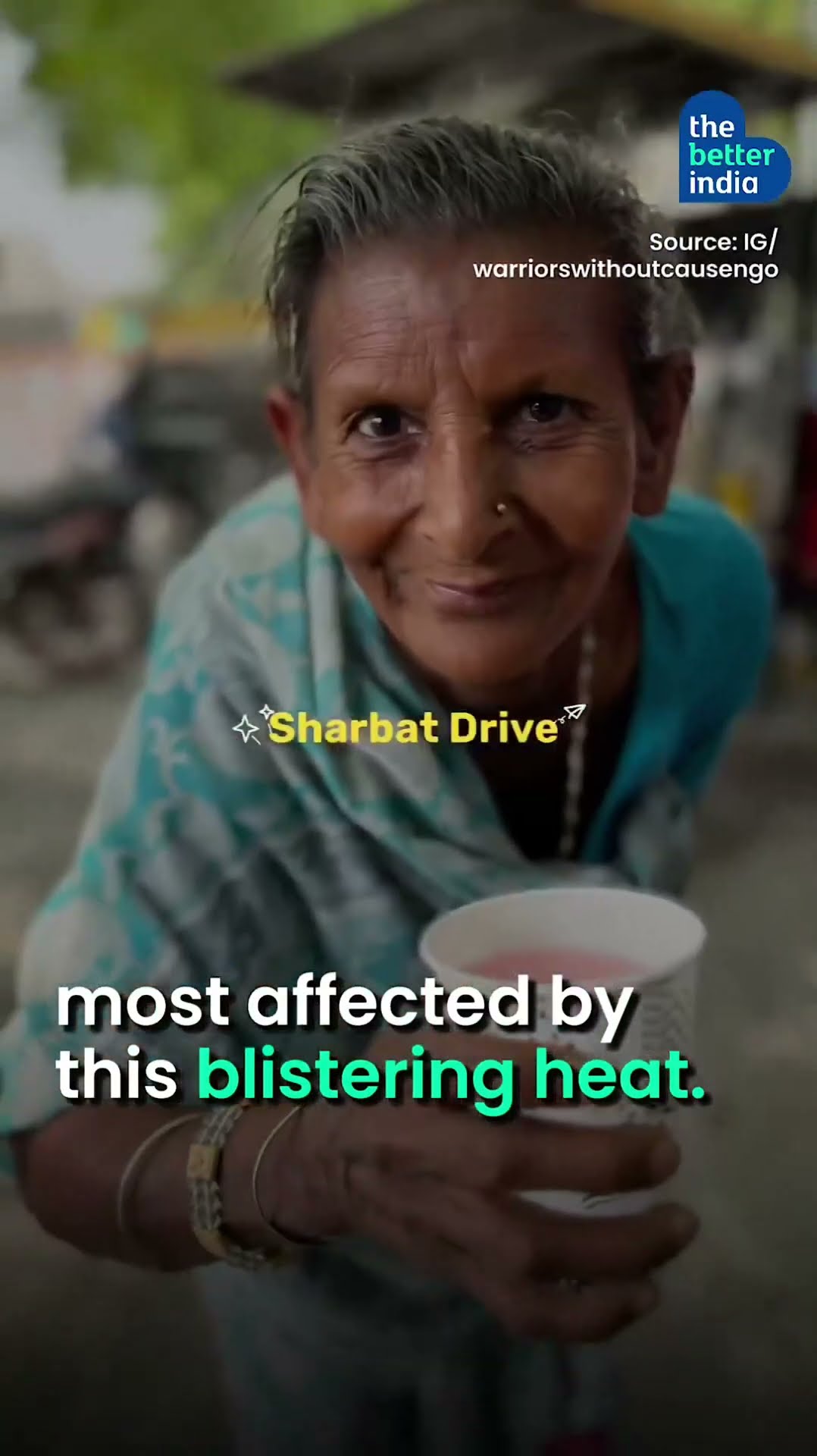Woman Distributes 15000 Free Menstrual Cups, Offers Regional Language Training On How To Use Them
The cups come with a cloth bag and a instruction manual in the local language.
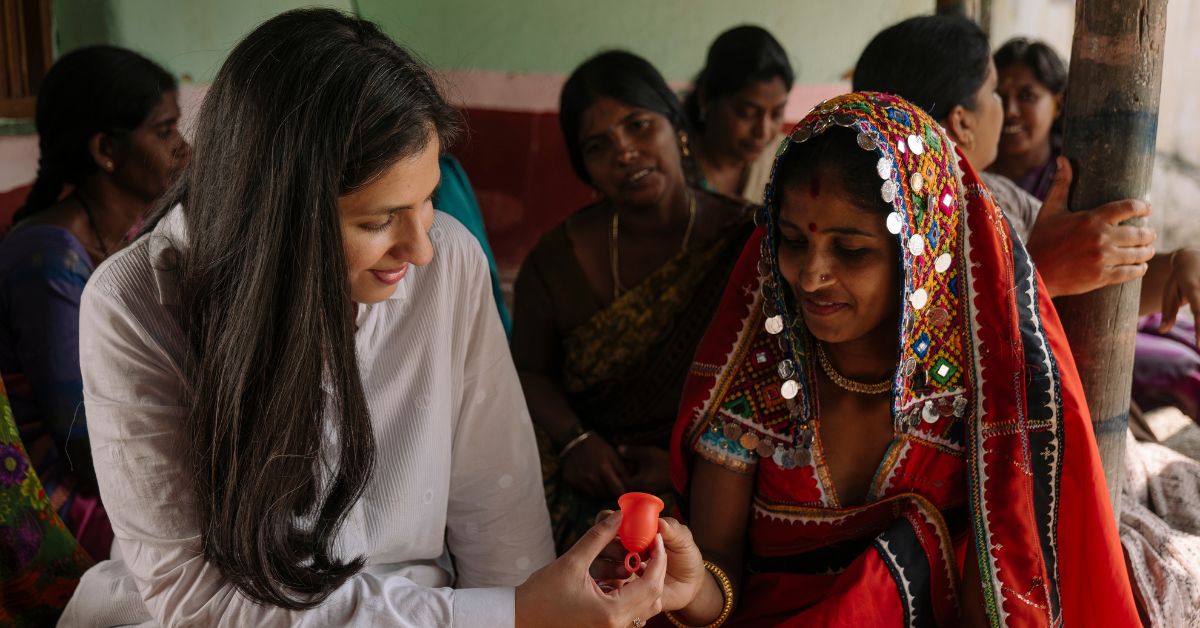
Remember when as a young girl you had just started to menstruate, the biggest concern was if we stained our clothes. A secret code ‘look’ was developed and passed to best friends or any other female to check if there was a leakage.
While the inconvenience becomes more bearable with age, the horror of staining continues for most of our lives. This is a familiar story to any woman, and it was the same for Ira Guha, the founder of Asan, a menstrual cup company.
“I used to be quite athletic as a kid and run around. I loved being outdoors and was an active basketball player in my school. I remember being in Chhattisgarh for a state-level game and being on my period. There were no bins in the school, so I had to carry the soiled pad in my bag,” she shares with The Better India.
Walking around feeling disgusted and embarrassed all day are some of her core experiences that shaped her as a woman in the menstrual hygiene business, she says. With her company Asan, she has helped over 15,000 women in 60 villages in Karnataka switch to menstrual cups so far.
“The cup is designed to make periods comfortable for every woman. When it comes to rural women, menstrual cups can help make periods easier and healthier for them,” she emphasises.
The foundation of Asan
Born in Bengaluru, Karnataka, she moved to the UK when she was 18 to pursue her higher education. “I was working as a management consultant in London and kept visiting home every once in a while. In 2016-17, the movie Padman was getting very popular and there was a lot of conversation around menstrual hygiene,” she says.
Recalling one of her visits during this time, she says, “I remember that our cook was on leave and I had called to ask the reason. She told me that she had a rash due to using cheap sanitary pads.”
Curious, Ira asked her to bring the pad once she recovered to check its quality.
“I could never imagine using that pad, as it was very harsh and the material did not seem to be absorbent. It was at that time that I introduced her to menstrual cups. I was using one in the UK but there were no brands at the time selling them in India,” she explains.
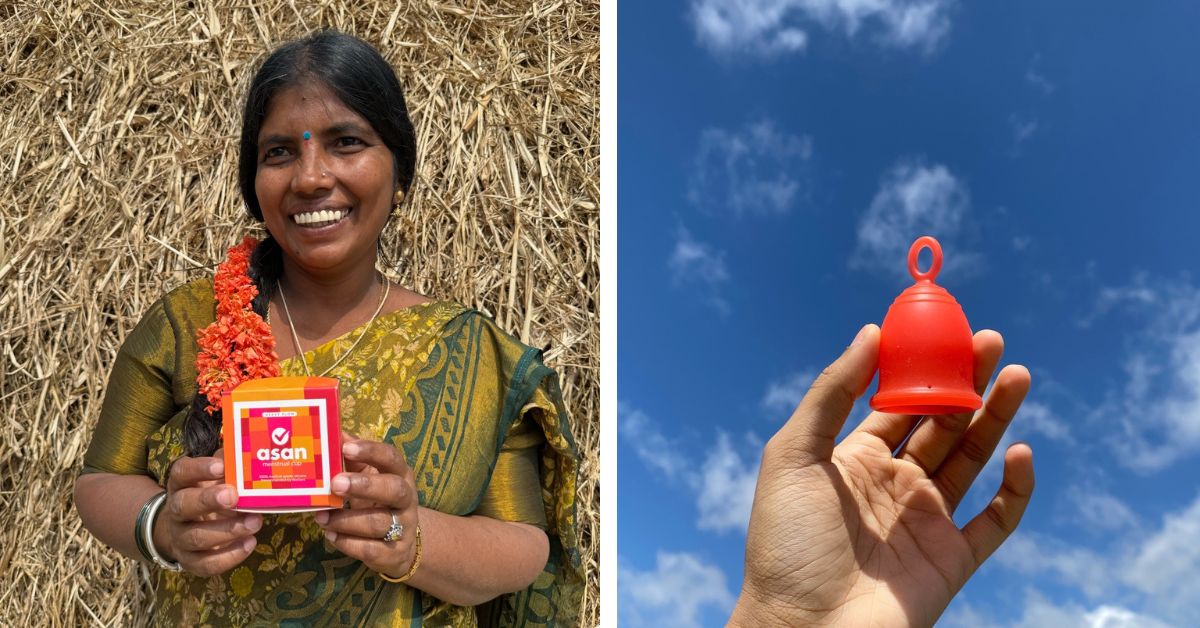
The maid had questions and Ira patiently answered all of them. “When I asked her if she wanted to try one as I was carrying a spare, she instantly agreed. Over the course of her next period, I asked her if she noticed any difference and she had some good reviews,” she says.
The maid was able to do her work better and in her words “didn’t feel like she was on her period”.
This struck Ira and she continued to carry menstrual cups for women in India. “At one point, I was carrying 10-15 menstrual cups on one trip,” she recalls.
“It was quite organic, I was distributing them among gardeners in the society, more domestic workers who heard about it etc. Fast forward a couple of years, I quit my job and went to study at Harvard. I was telling about my work in India to a professor who suggested that I should design my own cup,” she says.
She shares, “So I developed the Asan cup by working with an engineer at the Harvard Innovation Lab. We thoroughly studied existing menstrual cups in great detail, focusing on the highest quality cups available globally.”
What makes Asan different?
Talking about the research process and the hurdles she faced, she says, “During product development, I faced the challenge of getting qualitative feedback on the usage of my cups, as I had distributed many cups throughout India. I needed detailed feedback about issues like leaking, overflowing, and comfort, but people weren’t sharing these openly with me.”
To solve this, Ira included every single one of her friends in the user group. “I had women across the US and UK, primarily contacts of my friends, who were willing to provide detailed feedback,” she says.
Another major challenge was the scepticism around people using menstrual cups.
“Many people told me that India wasn’t ready for such a product and that women should stick to traditional methods. I overcame this challenge because I am a user of the Asan Cup myself, and it has transformed my life. I can sleep through the night, swim, do yoga, and run half a marathon comfortably.”
She adds, “My experience, along with the positive feedback from my early user group—including domestic workers and other women who adapted to the cup instantly—showed me that not only are women ready for this, but they are also calling out for it because the current products are of poor quality.”
It is Ira’s personal experience and the experiences of women around her that gave her the conviction to challenge those who said “Indian women weren’t ready and insertable products”.
“As a woman, I knew the need was there,” she asserts. Ira came out with the Asan Cup in the year 2017.
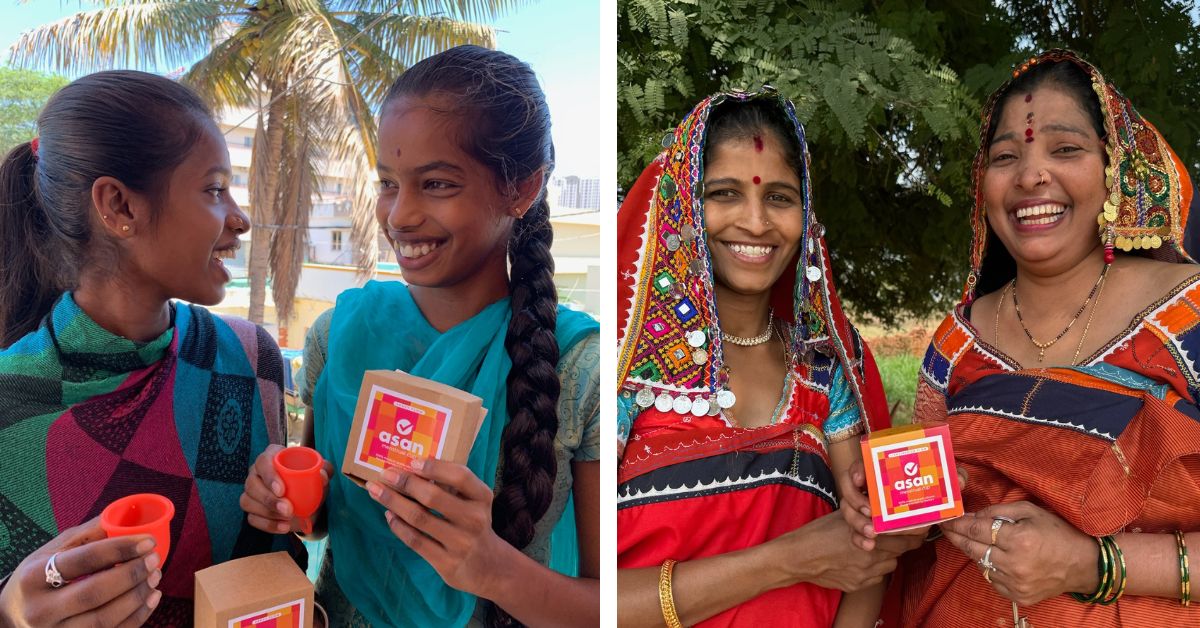
A utility-based product, Ira enlists the benefits of using an Asan Cup. “First, the Asan Cup costs just as much as six months’ worth of pads but can be reused for ten years. Secondly, sustainability: One Asan Cup’s life is equal to using 2,500 pads or tampons. Thirdly, effectiveness: One Asan Cup holds up to three times more than your average pad, so you can go up to 12 hours without changing it,” she says.
“Number four is safety. Unlike pads and tampons which may contain undisclosed ingredients, the Asan cup is made of medical-grade silicone, certified safe for health.”
“And finally discretion and convenience. The compact size of the Asan cup ensures discreet use, allowing users to maintain privacy about their menstrual cycle, avoiding the potential stigma associated with visible pads or cloth rags,” she adds.
Not to mention the reduction of sanitary pad waste which is reversed by the use of a menstrual cup, she explains.
How to reach rural women?
To reach women in rural areas, Asan also has a comprehensive behavioural change model.
“We have a programme to onboard and educate people on using the Asan Cup. The key to our behavioural change model is that education must come from a trusted source. For example, as someone from Bengaluru whose first language is English, I might not be a trusted source in a village.”
She adds, “This is why we hired local social workers and asked them to use the cups themselves. They then trained rural women on how to use the cup, which eliminated scepticism because the information was coming from a trusted source.”
For every Asan Cup the company sells, they donate one for free, primarily through their NGO partners in rural areas. “We also collaborate with various NGO partners, offices, and factories to offer subsidised schemes, making the Asan Cup more accessible.”
Ira engages with women from SHG, trains them and then sends them to villages to introduce women with the Asan Cup.
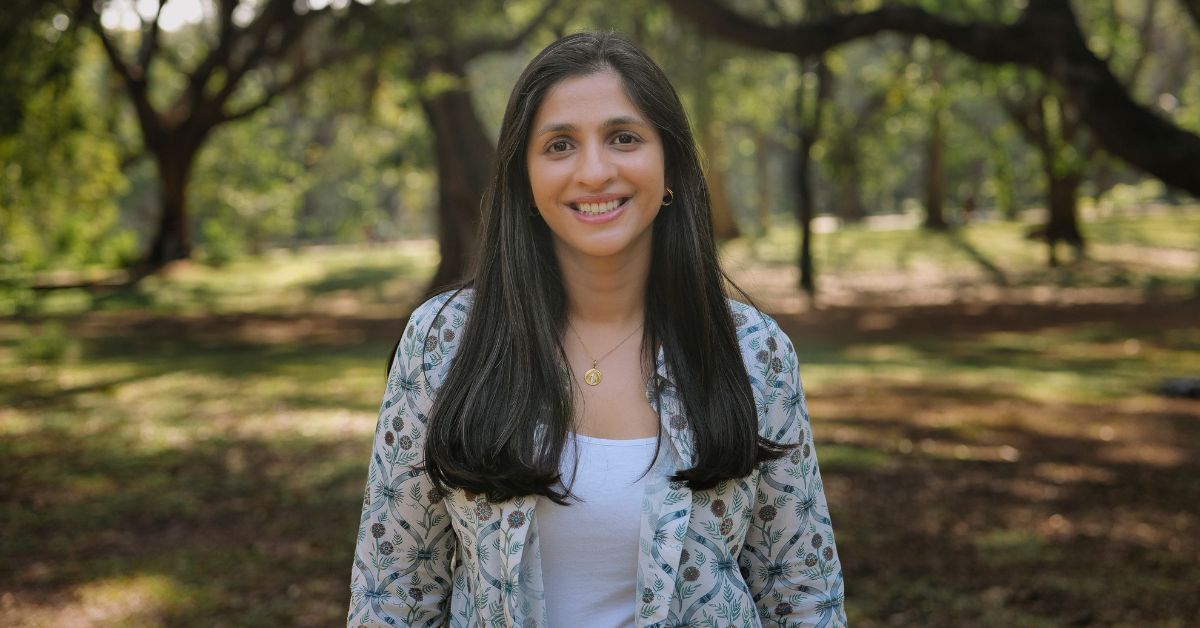
“Each recipient receives a clutch storage pouch, a user manual in their local language, and a detailed educational session conducted by a local health worker. They also receive the health worker’s contact for follow-up sessions over the next six months. This comprehensive programme ensures that everyone has the resources and support needed to safely use the Asan Cup,” she says.
So far, she has reached out to 15,000 women in 60 villages in Karnataka and Kanakapura. “Every single woman in those areas are using the Asan cup,” she says.
Nagamma, 36, who hails from Kanakapura, complained that she can’t wear her favourite white sarees fearing stains during her periods.
“But I have been using the Asan cup for several months now and the scenario has changed. The line between the period and non-period days has blurred. I have recommended it to my niece now as well. The pads used to give me rashes on the thighs but now there are no such issues. The best part is I wear whatever colour saree I want without any fear of stains,” she says.
Jayalakshmi, 38, highlighted that she had to put the used pads in a plastic bag and burn them. “I had no other choice, I just burned them when no one was watching. But not with the Asan cup, there is no need for that. Additionally, I used to hate travelling to work while wearing a pad in the heat but now I don’t feel any discomfort,” she shares.
While Asan continuously reaches women in rural India, Ira believes that her work is not over. “There are still hundreds of thousands of women using rags and lacking any access to menstrual hygiene. If even one woman is without access to menstrual hygiene, my job is not over. As a company, we want to eradicate period poverty in India.”
(Edited by Padmashree Pande; All pictures credit: Ira Guha)
If you found our stories insightful, informative, or even just enjoyable, we invite you to consider making a voluntary payment to support the work we do at The Better India. Your contribution helps us continue producing quality content that educates, inspires, and drives positive change.
Choose one of the payment options below for your contribution-
By paying for the stories you value, you directly contribute to sustaining our efforts focused on making a difference in the world. Together, let's ensure that impactful stories continue to be told and shared, enriching lives and communities alike.
Thank you for your support. Here are some frequently asked questions you might find helpful to know why you are contributing?


